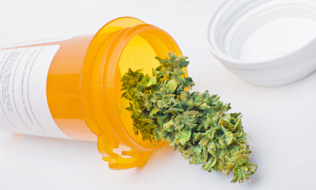
The federal government is getting out of the medicinal marijuana business and is looking to move the prescribing responsibilities to doctors and the manufacturing to the private sector. Right now, the impact on plan sponsors is moot, but that could change.
Currently, medicinal marijuana doesn’t carry a drug identification number (DIN)—an eight-digit number assigned by Health Canada to a drug product prior to being marketed. All drug products need to have one of these under Canadian law.
“If [the drug] doesn’t have this number, it’s not considered a covered product by insurers,” says Mike Sullivan, president of Cubic Health.
Under the new proposal, “the government will no longer produce and distribute marihuana for medical purposes.” Rather, it would open up the market to companies that meet “strict security requirements,” says a Health Canada release.
The proposed new “aim to treat marihuana as much as possible like any other narcotic used for medical purposes,” allowing doctors to “sign a medical document similar to a prescription,” for patients to then purchase from an authorized vendor.
Sullivan says that if the transition goes smoothly and the private sector looks after the growing and the selling of medicinal marijuana, the likelihood of private vendors seeking approval from Health Canada (and, in turn, a DIN) is high.
“It’s going to be a huge business,” says Sullivan. “And I think it’s going to happen sooner than later. As soon as there is a DIN, it’s going to make it accessible to private plans.”
In the past decade, Health Canada’s has grown to more than 26,000 authorized persons, up from under 500 in 2002.
The government intends to fully implement the new system by March 31, 2014.
